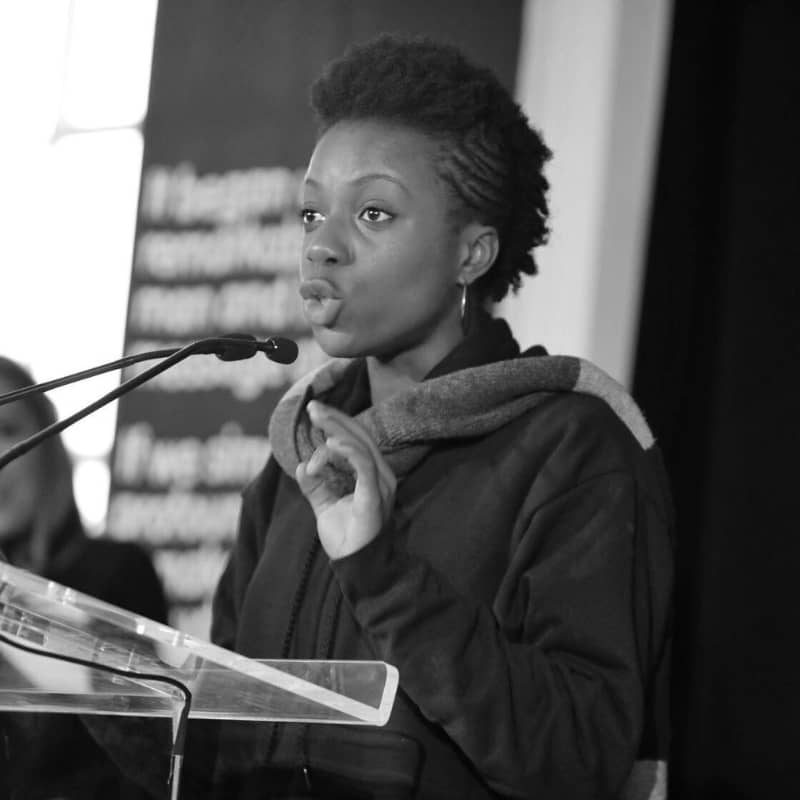Originally written by Chatham House: Common Futures Conversations Team
This post is part of a series reflecting on the results of the Common Futures Conversations survey of 3,487 young people from 13 countries across Africa and Europe. We asked young people a range of questions about the how they engage with news and political discussions online. When asked to select the social channels they thought to be reliable sources of information and news, these were the results. (Fig. 18)
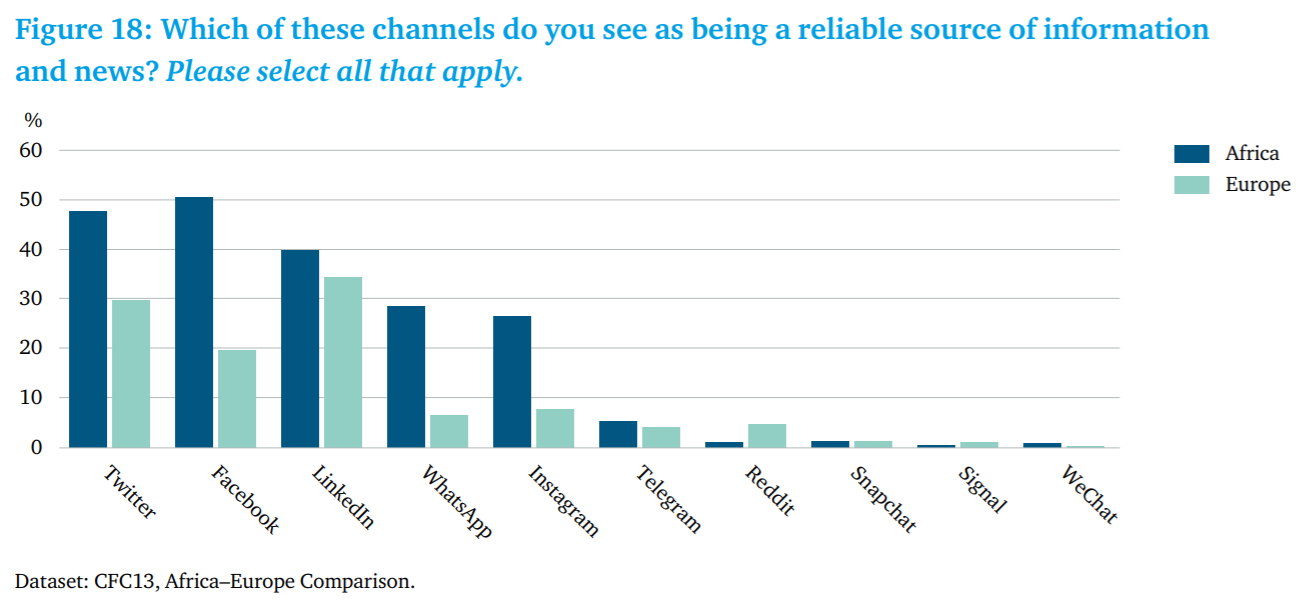
When then asked what factors would increase their likelihood in participating in a political debate, respondents indicated the following. (Fig. 22)

We asked three of the young people involved for their perspectives on why young people might not see social media as a useful forum for political debate. All responses have been edited for clarity.
Jacopo Bencini — Italy
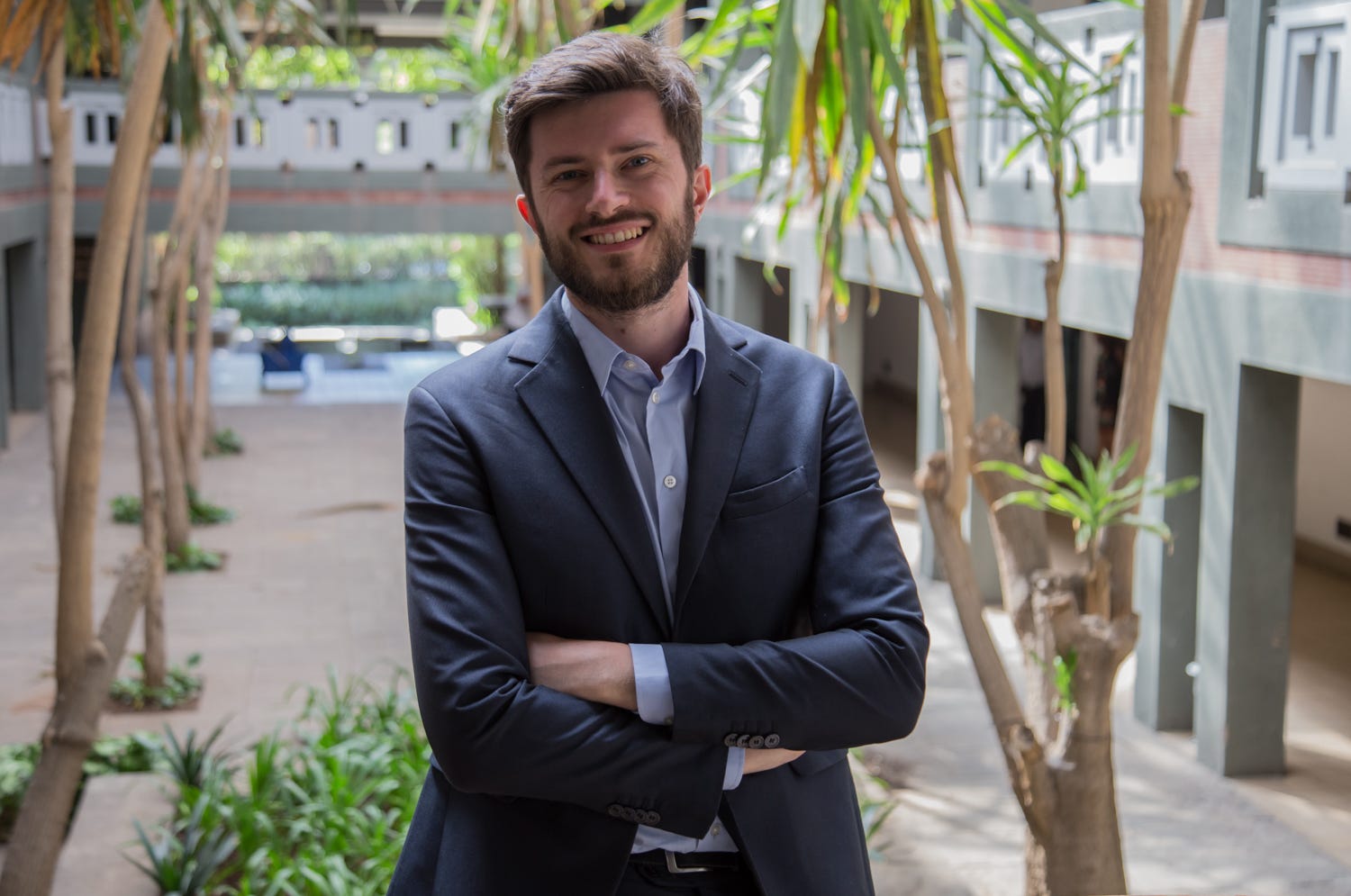
I think that an individual who’s already involved in politics to some extent will find no incentive in participating in political events hosted on social media, as he/she will always prefer to participate at in-person events for a variety of reasons for instance: direct and impactful interaction with targeted political stakeholders; direct interaction with their own network; recognition; the possibility to speak up in a qualifying setting; incentives in terms of network-building; and both online and offline visibility. The sample size of our survey is indicative of this.
More than one third of surveyed people — predominantly urban, middle class, politicized individuals — have already started their professional life. Another one third have already completed their education and, in general, they are already politically or socially active in their country — this being particularly true for the Italian respondents.
All these characteristics together, combined with other findings from the survey, suggest an already average high degree of participation by respondents in local or national political life. Politically-engaged youth are also acutely aware of fake news and distortions arising from and inside social media conversations and may avoid online forums for that reason. According to our survey findings, young people see the participation of an expert as a clear incentive to participation so it may also be fair to suggest that conversations on social media are avoided as individuals feel like they are losing time without any personal takeover or political incentive.
Grace Kamere — Kenya
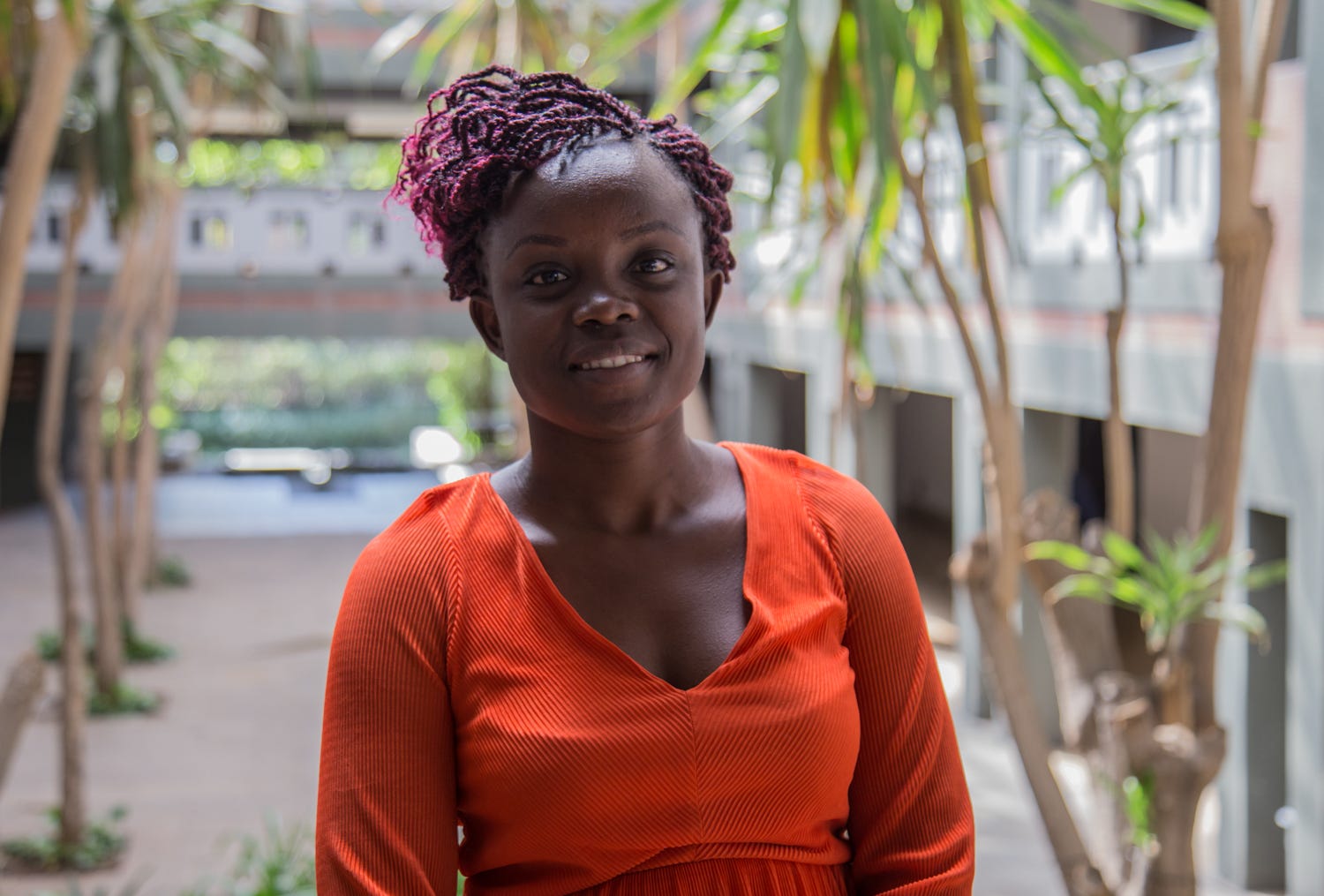
In Kenya, young people have become apathetic because of empty promises from politicians. Kenyan leaders often entice young people with issues targeted at their demographic during elections but solutions never materialize in the long run.
Online political events are not perceived as ‘serious’ events compared to physical meet-ups. They are often seen as a forum with too much talk and too little points being actualized. They are also unattractive because they lack the human touch that comes with physical events. In many ways human contact enables participants to hold others accountable to the promises made.
Despite Kenyan youth being active on social media — especially on Twitter where we have our small army of #KOT (Kenyans on Twitter) — they are reluctant to be involved in discussing political issues online.
Holding a political event on social media is also not enticing for young people because of the consequences that may follow. In the recent past, activists have been arrested for openly stating their political opinions on social media so young people do not view social media as a safe space where they can openly discuss their political opinions.
There is also a lot of distrust of online sources of information. During the 2017 general elections, the government stated that NGOs were funding the opposition party and hence their programmes were no longer impartial. While this wasn’t true, it created a shift on how young people engaged with organizations working within the scope of governance.
Mirabelle Morah — Nigeria
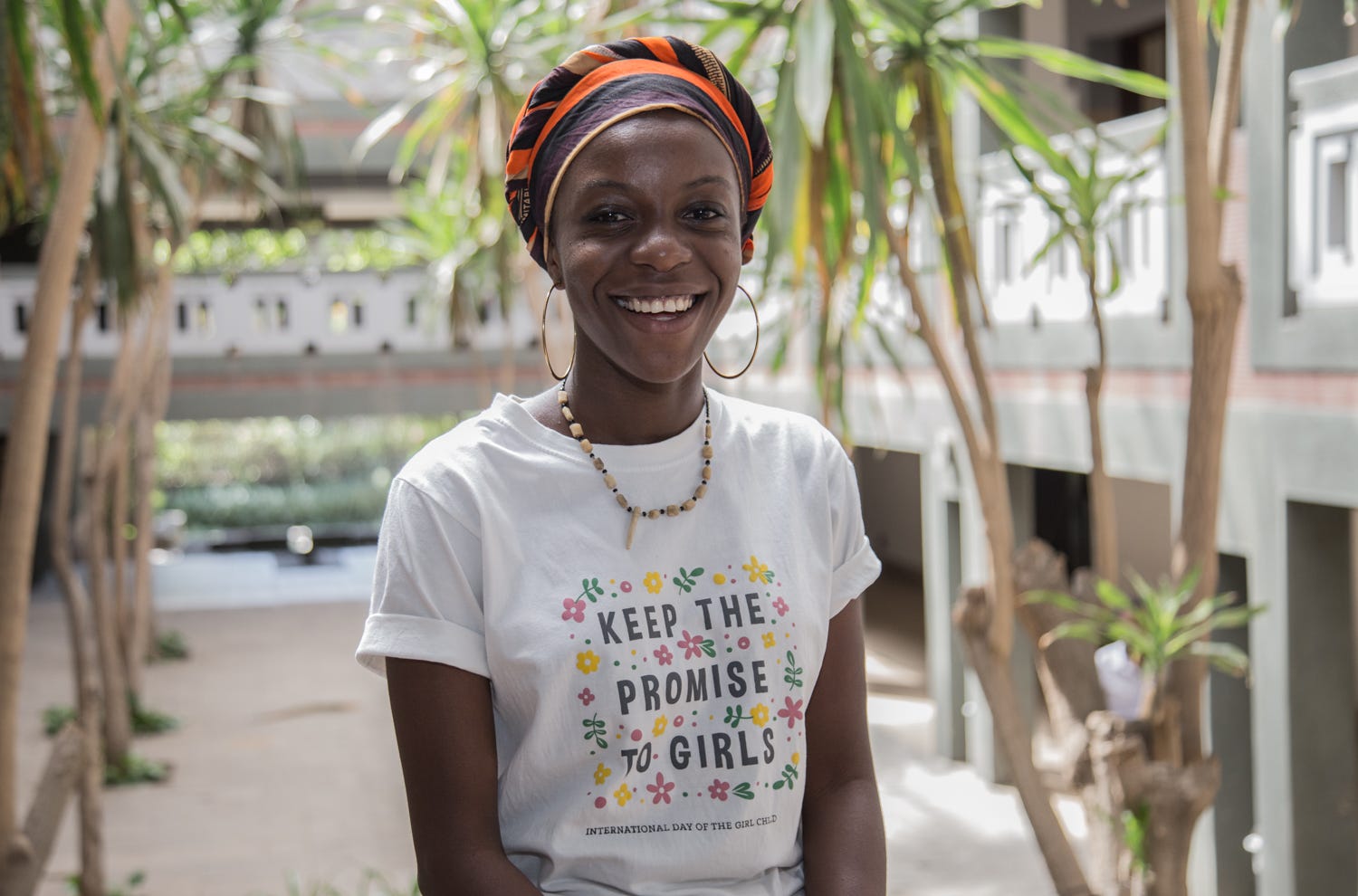
From the point of view of young Nigerians, like myself, politicians in our country make too many promises during election campaigning that are rarely acted on once they are in office. As a result, whenever political conversations come up, especially online, we take everything with a pinch of salt and are sceptical about their validity and truth. From our perspective, it is one thing to make lofty promises online, but backing them up with physical actions is another. This outlook is dangerous because it has caused many young people to grow apathetic towards political issues and institutions. They feel as if their opinions and voices do not matter and they are only used for their votes in elections. At the end of the day, we know that the decision-makers are still the same old men who have been managing the country for years.
In Nigeria, safety is also a barrier to political involvement, especially online, when personal information can be easily accessed. While safety is an issue for everyone in Nigeria in relation to politics, it is especially discouraging for young people. During the survey, we approached a very popular figure in Nigeria to help us promote the project but they said they did not want to get involved. Why? Because they did not want to be affiliated with anything political in the country due to the nature of their job.
This is the fifth of six blog posts exploring some of the insights from the 2019 Common Futures Conversations Youth Survey.
Read the rest of the series here or download the full survey results here.
The Common Futures Conversations project is developing an online platform to facilitate dialogue between young people and policymakers in Africa and Europe. For more information, please visit the website.
Common Futures Conversations is a collaboration between Chatham House and Robert Bosch Stiftung.

